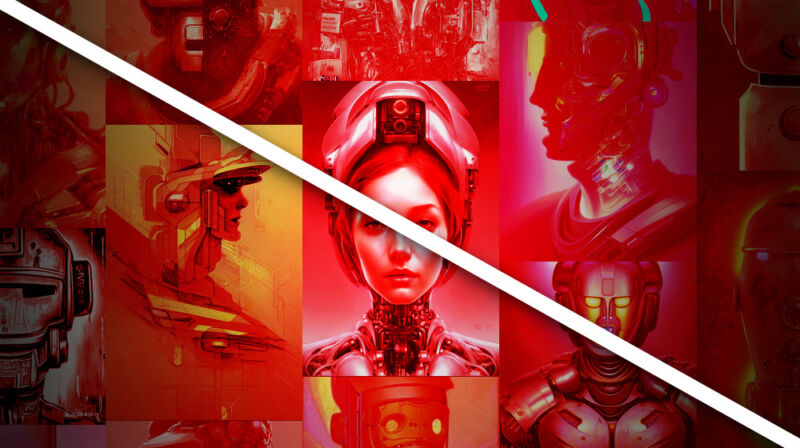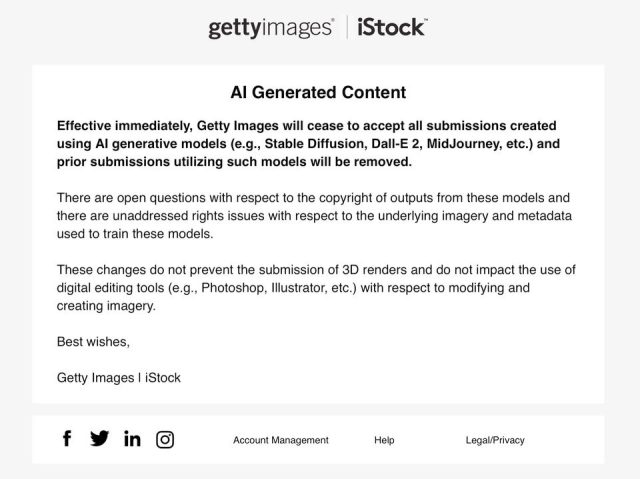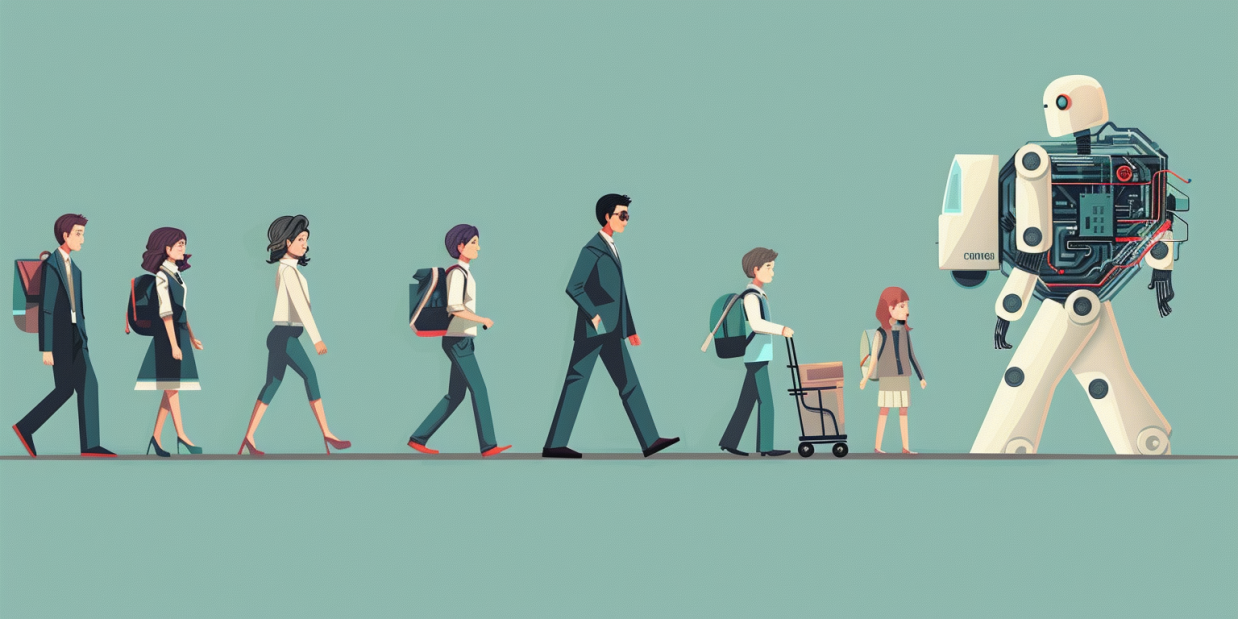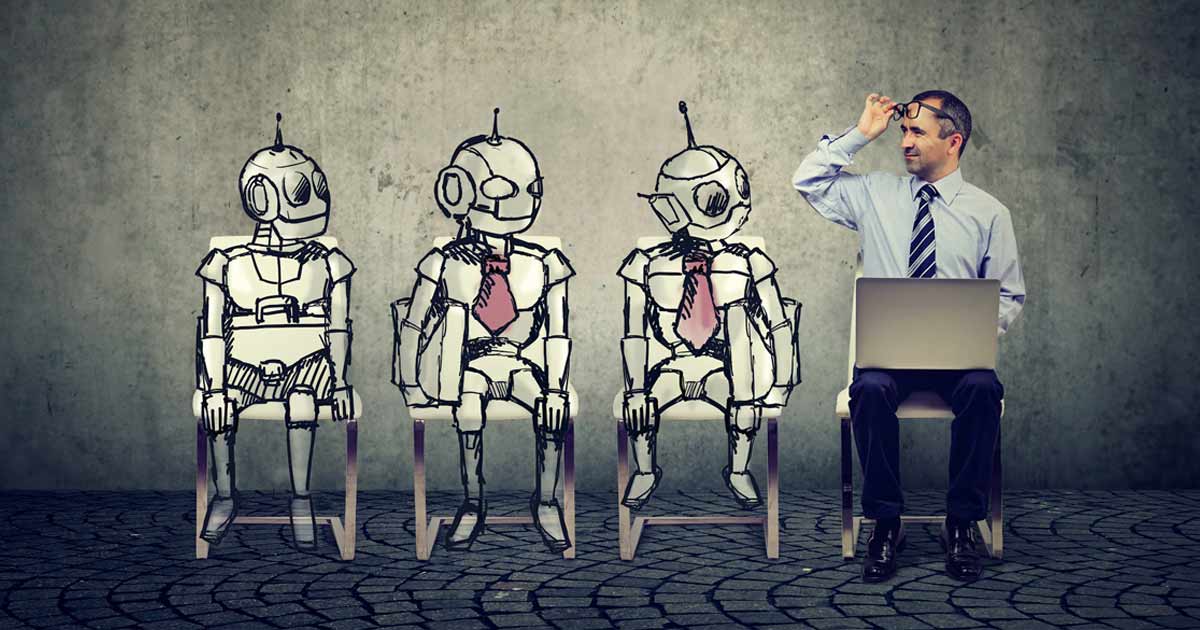
Ars Technica
Getty Photos has banned the sale of AI generative artwork developed making use of graphic synthesis types these as Secure Diffusion, DALL-E 2, and Midjourney through its company, The Verge stories.
To make clear the new coverage, The Verge spoke with Getty Photos CEO Craig Peters. “There are authentic worries with regard to the copyright of outputs from these types and unaddressed legal rights troubles with respect to the imagery, the image metadata and those people persons contained within just the imagery,” Peters advised the publication.
Getty Visuals is a huge repository of inventory and archival photos and illustrations, usually made use of by publications (these as Ars Technica) to illustrate article content right after paying a license fee.
Getty’s shift follows graphic synthesis bans by scaled-down art local community websites earlier this month, which located their sites flooded with AI-generated work that threatened to overwhelm artwork designed without having the use of people equipment. Getty Illustrations or photos competitor Shutterstock allows AI-produced artwork on its website (and even though Vice not too long ago documented the site was eradicating AI artwork, we continue to see the same sum as before—and Shutterstock’s written content submission conditions have not transformed).

Getty Visuals
The capability to copyright AI-created artwork has not been analyzed in courtroom, and the ethics of utilizing artists’ work without having consent (like artwork located on Getty Visuals) to educate neural networks that can generate almost human-level artwork is nevertheless an open issue remaining debated on line. To secure the firm’s manufacturer and its customers, Getty resolved to stay clear of the difficulty completely with its ban. That reported, Ars Technica searched the Getty Pictures library and discovered AI-created artwork.
Can AI artwork be copyrighted?
Although the creators of well-known AI picture synthesis types insist their items produce operate guarded by copyright, the issue of copyright around AI-produced photographs has not yet been absolutely fixed. It is worthy of pointing out that an normally-cited short article in the Smithsonian titled “US Copyright Office Procedures AI Artwork Can’t Be Copyrighted” has an erroneous title and is generally misunderstood. In that case, a researcher tried to sign-up an AI algorithm as the non-human operator of a copyright, which the Copyright Workplace denied. The copyright owner need to be human (or a group of individuals, in the case of a corporation).
Currently, AI picture synthesis companies work less than the assumption that the copyright for AI artwork can be registered to a human or company, just as it is with the output of any other inventive tool. There is some strong precedent to this, and in the Copyright Office’s 2022 final decision rejecting the registry of copyright to an AI (as talked about previously mentioned), it referenced a landmark 1884 legal scenario that affirmed the copyright status of photographs.
Early in the camera’s heritage, the defendant in the circumstance (Burrow-Giles Lithographic Co. v. Sarony) claimed that pictures could not be copyrighted for the reason that a image is “a copy on paper of the precise features of some purely natural object or of some human being.” In effect, they argued that a photograph is the get the job done of a machine and not a innovative expression. Rather, the court ruled that images can be copyrighted mainly because they are “associates of primary intellectual conceptions of [an] author.”
People acquainted with the AI generative art process as it now stands, at minimum pertaining to textual content-to-picture turbines, will figure out that their graphic synthesis outputs are “reps of primary mental conceptions of [an] author” as properly. Irrespective of misconceptions to the contrary, innovative input and direction of a human are nevertheless vital to generate picture synthesis work, no subject how little the contribution. Even the selection of the tool and the decision to execute it is a imaginative act.
Under US copyright legislation, urgent the shutter button of a digicam randomly pointed at a wall continue to assigns copyright to the human who took the image, and however the human imaginative enter in an impression synthesis artwork can be much much more extensive. So it would make sense if the human being who initiated the AI-created operate holds the copyright to the graphic until or else restrained by license or conditions of use.
All that mentioned, the dilemma of copyright over AI artwork has but to be legally fixed a person way or the other in the United States. Stay tuned for even more developments.










